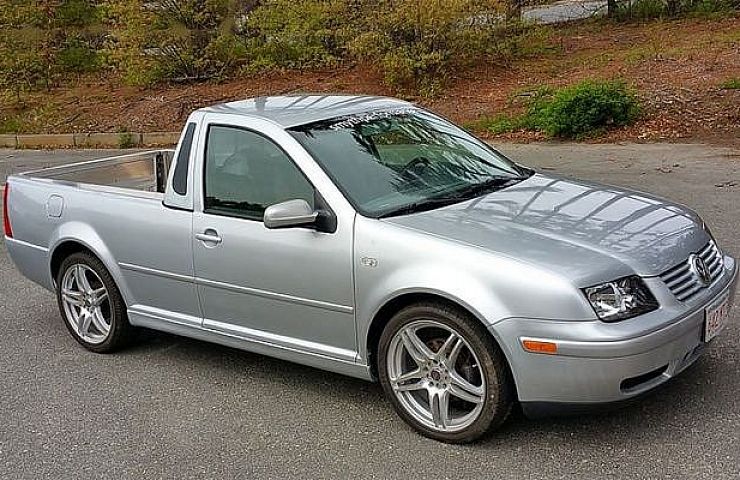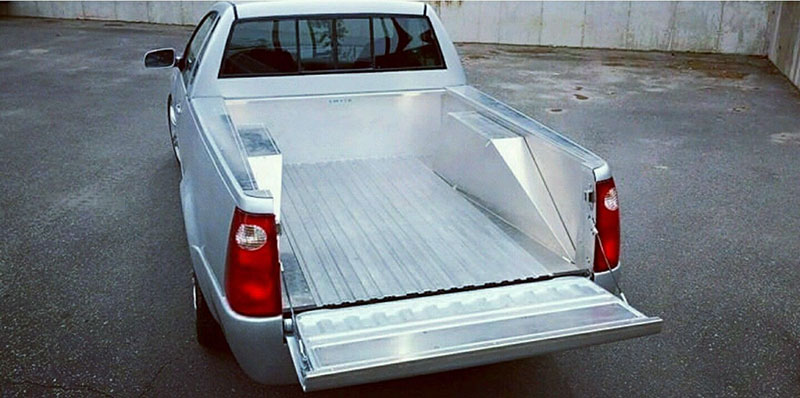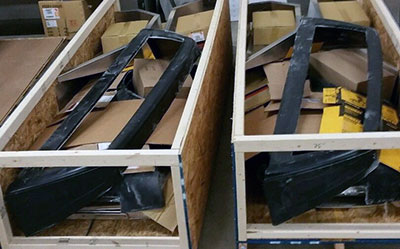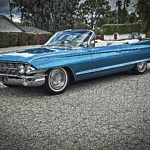Can you imagine driving a stylish small modern pickup capable of 40 miles per gallon? That doesn’t exist on any dealer lot, but with a used VW Jetta or Golf, a $3,500 kit, and a few weekends, you can build a VW Jetta Truck yourself.
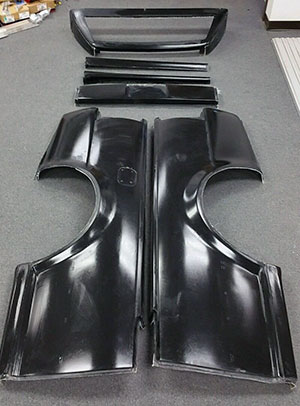
Jetta Truck Origin Story
The Smyth Performance Volkswagen Jetta/Golf Truck Conversion Kit is the brainchild of Mark Smith, a Massachusetts-based serial automotive entrepreneur. Smith founded Factory Five Racing—best known for its Cobra replica kit car, the MK4 Roadster—with his brother Dave in the mid-1990s. He handed over day-to-day operations of the business to his brother in 2002 and embarked on a series of projects, including co-founding Local Motors, the headline-grabbing company that uses 3D printing to produce cars and parts.
Smith launched Smyth Performance with a mid-engine kit car based on the Volkswagen Jetta TDI in 2011. Unfortunately, the Smyth mid-engine car—as cool as it was—didn’t make it into production. Meanwhile, the Jetta pickup kit, a by-product of Smith’s interest in diesel and biodiesel, was an idea waiting to happen.
A 50-MPG Pickup
“Shop trucks don’t necessarily need one-ton capacity,” Smith explained. “I wanted the performance and drivability of a car with a 700-pound payload. The 50 mpg of a diesel doesn’t hurt.” The biggest obstacle in the kit’s creation? Maintaining structural integrity while keeping the kit easy to build.
Interest in the tiny truck swelled when it was featured in an episode of Rutledge Wood’s “Lost in Transmission,” on the History Channel. Sales of the truck kit took off, as Smyth hustled to keep up with orders. Roughly half of the truck projects use TDI turbo diesels, with the remainder split between 1.8T, 2.0-liters and VR6s.
Building a VW Jetta Truck, Step-by-Step
The conversion can be managed in a home garage (or driveway). It does not require expensive specialty tools or a lift. The process starts by partially gutting the interior, removing the rear seats, seat belts, and trim pieces. Then the rear doors, trunk, rear bumper cover, and tail lights are removed. The next step is strategically cutting off the rear roof and body panels with circular and reciprocating saws.
Once the factory panels are removed, the inner bed and tailgate are carefully fitted and installed. This is the most tedious and time-intensive part of in the process. Then, the sliding window is installed in the fiberglass rear cab panel, before fitting and hanging the panel on the truck. It all comes together when the fiberglass exterior bed panels are riveted in place—and it’s time to button up the interior and spray the truck.
Smyth’s Jetta Pickup is the Tip of the Iceberg
Smyth has sold nearly 100 Jetta truck kits so far, mostly in the USA and Canada. “Volkswagen enthusiasts are passionate about the brand. We’ve shipped kits from the Yukon to the UK,” said Smith. “The Smyth kit is only modern small pickup available in America today.”
Smyth has half a dozen new truck kits in development. The company will offer VW Jetta kits in MK4, MK5 and MK6 models. And can you imagine the looks you would get when using one of Smyth’s upcoming kits to convert an Audi A4/S4, Subaru Impreza/WRX, or Dodge Charger HEMI?

